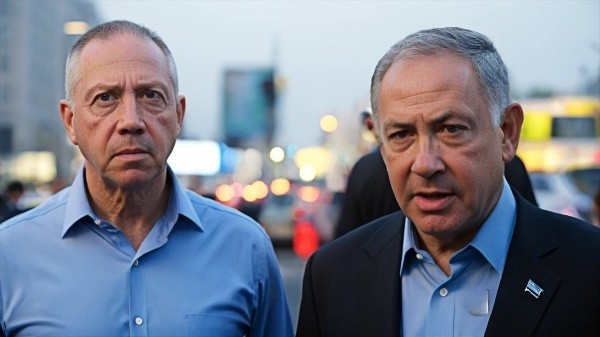Iran’s Plan to Strike Back Against the U.S.
Iran’s Military Preparations Following U.S. Attacks
Loading...

Replacing Yoav Gallant with former foreign minister Israel Katz could be a face-saving move
Leadership Changes Amidst Political Turmoil
In a surprising political maneuver, Israeli Prime Minister Benjamin Netanyahu dismissed his defense minister, Yoav Gallant, and appointed former Foreign Minister Israel Katz as his replacement. This unexpected reshuffle took place on the day of the US presidential election, signaling a strategic move by Netanyahu as he navigates strained relations with the Democratic Party, potentially anticipating a victory by Kamala Harris. The change in leadership is seen as an attempt to address growing international and domestic pressures facing Israel.
A Year of Conflict and Criticism
Yoav Gallant, known for his firm stance on security, served as defense minister since December 2022. His tenure was marked by ongoing military operations in Gaza and Lebanon, which have been criticized for lacking significant achievements. The conflict, which began in October 2023, resulted in substantial casualties and displacement within Israel, drawing criticism from political rivals and the public. International entities, including the United Nations and Human Rights Watch, have raised concerns about the humanitarian impact, urging Israel to seek diplomatic resolutions.
Economic Challenges and Credit Downgrades
Israel's prolonged military engagements have negatively impacted its economy. Economic growth has slowed, and labor shortages have arisen due to the mobilization of reservists and restrictions on Palestinian workers. Consequently, international credit agencies like Fitch, Moody's, and S&P have downgraded Israel’s credit ratings, citing escalating geopolitical risks and increased defense expenditures. These downgrades reflect concerns about Israel's economic stability and have led to reduced foreign investment and heightened financial volatility.
Diplomatic Isolation and International Pressure
Israel faces growing diplomatic isolation, exacerbated by international protests and legal challenges. Mass demonstrations have erupted in major cities worldwide, expressing solidarity with Palestinians and criticizing Israeli policies. South Africa has filed a case with the International Court of Justice, accusing Israel of acts of genocide in Gaza. Additionally, the International Criminal Court is investigating alleged war crimes by Israel, further intensifying global scrutiny.
Türkiye's call for a UN ban on arms supplies to Israel underscores the international community's concern about escalating conflicts. These developments threaten to restrict Israel's access to military resources and allied support, prompting the government to reconsider its diplomatic strategies.
Strategic Appointments and Domestic Reactions
Netanyahu's decision to appoint Israel Katz as defense minister aims to bolster Israel's international standing and diplomatic efforts. Katz's experience as Foreign Minister positions him to address criticism and seek new alliances. Domestically, this move is perceived as an attempt to demonstrate decisive leadership amidst mounting political and public pressure.
The reshuffle, however, has evoked mixed reactions. While some view it as a commitment to reform, others criticize it as an insufficient response to deeper systemic issues. Gallant's dismissal is seen by some as a scapegoating tactic, allowing Netanyahu to preserve political capital while deflecting blame for recent shortcomings.
Challenges Ahead: Bridging Divides and Strategic Shifts
The appointment of Katz raises questions about his ability to address pressing national security and political stability challenges. The societal divide, fueled by military, economic, and social issues, presents a significant challenge for the Israeli government. To regain public trust, stabilize the economy, and restore international support, fundamental strategic shifts may be necessary.
As Netanyahu's administration navigates these complex challenges, the effectiveness of leadership changes without substantial policy reforms remains uncertain. The path forward requires balancing domestic pressures with international diplomacy to prevent further escalation and maintain control over the evolving political landscape.
Editor
Iran’s Military Preparations Following U.S. Attacks
Troops remain in five strategic locations, raising fears of renewed tensions and long-term occupation.
Opposition forces have taken control of the capital after a significant offensive. Here is how it unravelled.
